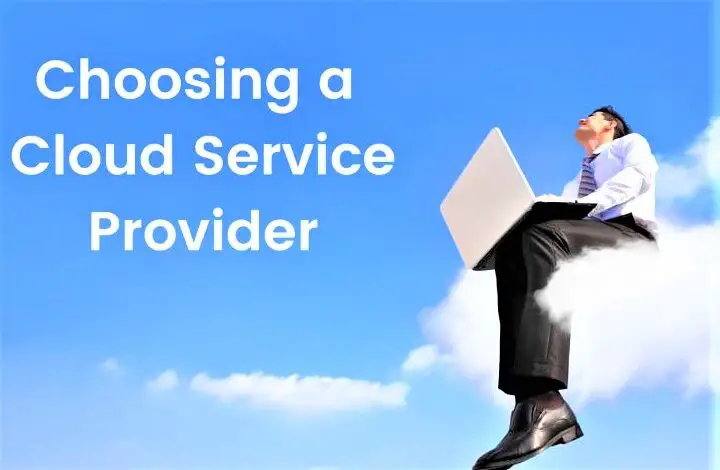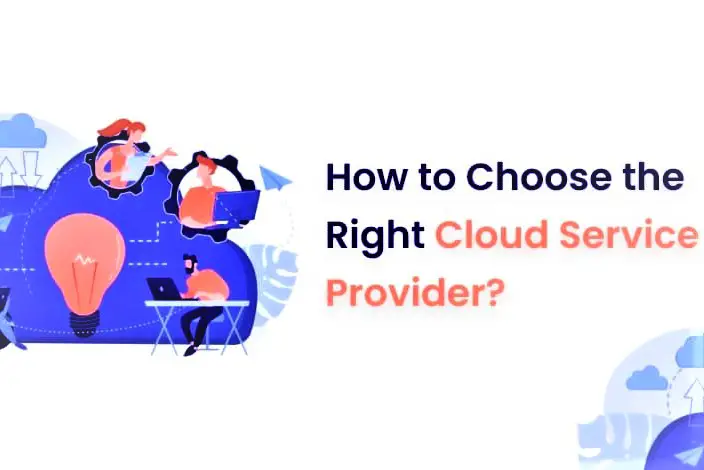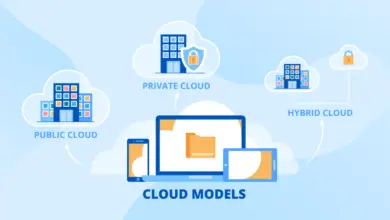How to Choose the Right Cloud Storage Service Provider? Kat Technical
7 Factors to Help You Choose the Right Cloud Storage Service Provider

Right Cloud Storage Your unique requirements, including the applications and data you must host, your budget, and your security requirements, must be taken into account when selecting a cloud provider. Additionally, take into account the provider’s track record, support, performance, and roadmap for the future. The provider’s geographic location, service offerings, and compliance requirements are additional factors to take into account.

Cloud computing has become an essential part of the modern business landscape. It offers a number of benefits, including scalability, flexibility, and cost savings. However, with so many different cloud providers to choose from, it can be difficult to know which one is right for your business.
Here are some factors to consider when choosing a cloud provider:
Cost:
Cloud computing can be a cost-effective way to host your applications and data. However, there are a variety of pricing models to choose from, so it’s important to compare costs before you make a decision.
Security:
Security is a top priority for any cloud provider. Make sure to research the provider’s security practices and certifications. You should also ask about their data breach response plan.
Performance:
Cloud providers offer a variety of performance levels. If you have latency-sensitive applications, you’ll need to choose a provider with a strong performance record.
Support:
Cloud providers offer a variety of support options. Make sure to choose a provider with a support team that is responsive and knowledgeable.
Reputation:
Do some research on the cloud provider’s reputation. Look for reviews from other businesses and make sure the provider has a good track record.
The provider’s geographic location:
If you have compliance requirements, you may need to choose a provider that has data centers in your region. Some cloud providers have data centers in multiple regions around the world, which can help you meet your compliance requirements.
The provider’s service offerings:
Some cloud providers offer a wider range of services than others. Make sure the provider offers the services you need, such as computing, storage, networking, and databases.
The provider’s future roadmap:
Cloud computing is a rapidly evolving market. Make sure the provider you choose has a strong future roadmap and is committed to innovation. They should be constantly adding new features and services to their platform.
FAQs
What are the different types of cloud providers?
There are three main types of cloud providers:
Public cloud providers.
Public cloud providers offer their services to the general public. They are the most popular type of cloud provider and offer a wide range of services, such as computing, storage, networking, and databases. Some popular public cloud providers include Amazon Web Services (AWS), Microsoft Azure, and Google Cloud Platform (GCP).
Private cloud providers.
Private cloud providers offer their services to a specific organization or group of organizations. They are often used by businesses that need to have more control over their data and security. Some popular private cloud providers include VMware, Cisco, and IBM.
Hybrid cloud providers
Hybrid cloud providers offer a combination of public and private cloud services. This can be a good option for businesses that need the flexibility of a public cloud but also need the control and security of a private cloud. Some popular hybrid cloud providers include VMware, Cisco, and IBM.
How do I compare cloud providers?
There are a few different ways to compare cloud providers. One way is to use a cloud comparison tool. These tools can help you compare different providers on a variety of factors, such as price, features, and performance. Another way to compare cloud providers is to read reviews from other businesses. This can give you an idea of what other businesses have experienced with different providers. Finally, you can also contact different providers directly and ask them questions about their services.
How do I make the best decision when choosing a cloud provider?
The best way to make the best decision when choosing a cloud provider is to carefully consider your specific needs and the factors listed above. Once you have a good understanding of your needs, you can start to compare different providers and choose the one that is the best fit for your business.
How do I choose a cloud service model?
There are three main cloud service models:
Software as a Service (SaaS):
This is the most popular cloud service model. SaaS providers deliver software applications over the Internet. The user does not need to install or manage any software on their own computers.
Infrastructure as a Service (IaaS):
This cloud service model provides access to computing resources, such as servers, storage, and networking. The user is responsible for managing and configuring these resources.
Platform as a Service (PaaS):
This cloud service model provides a platform for developing, deploying, and managing applications. The user does not need to worry about the underlying infrastructure.
Which cloud service provider is best?
The best cloud service provider for you will depend on your specific needs and requirements. Here are some of the most popular cloud service providers:
Amazon Web Services (AWS):
AWS is the leading cloud service provider, offering a wide range of services.
Microsoft Azure:
Azure is a close second to AWS and offers a similar range of services.
Google Cloud Platform (GCP):
GCP is a newer cloud service provider, but it is growing rapidly.
IBM Cloud:
IBM Cloud is a good option for businesses that need a lot of security and compliance features.
Oracle Cloud:
Oracle Cloud is a good option for businesses that use Oracle products.
What are the five considerations while selecting a public cloud provider?
The five considerations while selecting a public cloud provider are:
Security:
The cloud provider must have a strong security track record and implement best practices to protect your data.
Reliability:
The cloud provider must have high uptime and be able to recover from outages quickly.
Performance:
The cloud provider must be able to meet your performance requirements for your applications and data.
Cost:
The cloud provider must offer a pricing model that fits your budget.
Support:
The cloud provider must offer good support in case you need help with your account or applications.
What are the main requirements of a cloud service provider?
The main requirements of a cloud service provider are:
Availability:
The cloud provider must be available 24/7/365.
Scalability:
The cloud provider must be able to scale up or down to meet your needs.
Security:
The cloud provider must protect your data with strong security measures.
Compliance:
The cloud provider must meet your compliance requirements.
Support:
The cloud provider must offer good support in case you need help.




